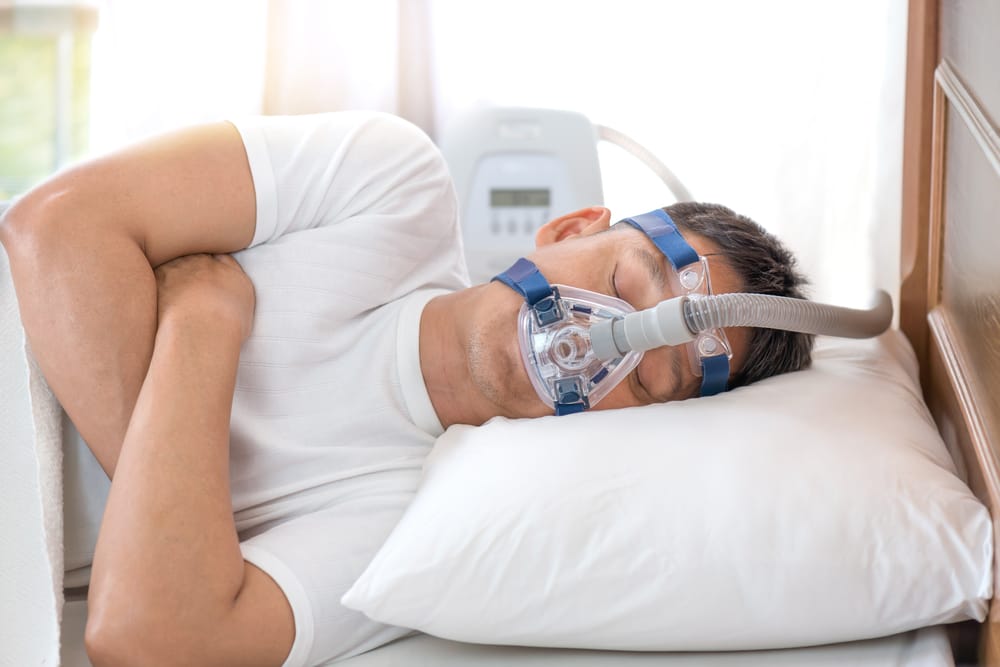Requirements To Obtain Obstructive Sleep Apnea VA Compensation

The Department of Veterans Affairs (VA) provides compensation for veterans with OSA whose condition is related to their military service in acknowledgment of the difficulties these veterans endure. Acknowledging the special circumstances and sacrifices connected to military duty, this recompense seeks to support and aid veterans dealing with the repercussions of OSA. This blog examines how OSA affects veterans and describes what's needed to get VA benefits.
What is OSA?
Obstructive sleep apnea (OSA) is a quite common condition in which breathing is obstructed during sleep by the throat walls relaxing and narrowing. These blockages can cause reduced blood oxygen levels, interrupted sleep, and other health issues. Along with other symptoms, snoring, lethargy, and daytime sleepiness are frequently linked to OSA.
Various OSA Effects
Because of their special circumstances and difficulties, veterans may have more severe impacts from Obstructive Sleep Apnea (OSA). The following are some particular consequences of OSA that veterans face:
Effects on Mental Health
Increased levels of anxiety, despair, and mood fluctuations are frequently reported by veterans with OSA. The stresses of military service combined with disturbed sleep habits might worsen pre-existing mental health issues or lead to the emergence of new ones.
Increasing Injuries Associated with Service
Many veterans have suffered trauma or injuries while serving in the military, which OSA may exacerbate. Oversleeping and resulting in weariness can exacerbate chronic pain, delay the healing process after injuries, and impede attempts at rehabilitation.
Carrying Out Military Tasks: A Challenge
Because OSA can affect memory, focus, and cognitive function, it can be difficult for veterans to carry out their military responsibilities. It may also put the veterans and their fellow service members' safety in danger. This can affect preparedness, productivity, and general performance.
PTSD (Post-Traumatic Stress Disorder) Risk Increase
OSA has been linked to a higher chance of PTSD development or a worsening of symptoms in veterans having the disorder already. OSA can aggravate the nightmares and sleep difficulties associated with PTSD, which can result in increased psychological discomfort and decreased functioning.
Drug and Treatment Complications
To treat their condition, veterans with OSA may need to take drugs or undergo therapy; however, these treatments may conflict with those given for other disorders connected to their military service. Veterans may also have trouble getting the right OSA treatment, such as specialized care and diagnostic sleep testing.
Influence on Life Quality
Veterans' relationships, social contacts, and capacity to engage in enjoyable activities can all be adversely impacted by OSA, which can drastically lower their overall quality of life. Veterans' participation in employment, family life, and leisure activities may be restricted by chronic fatigue, excessive daytime drowsiness, and other symptoms of OSA.
Higher Cost of Healthcare
To manage their illness and any related health concerns, veterans with OSA may need regular checkups, diagnostic tests, and medical interventions. Especially for veterans living in underdeveloped or rural regions, this puts a further burden on the healthcare system and could make it more difficult for them to get timely and appropriate care.
How do veterans receive VA compensation for OSA?
Veterans must fulfill specific requirements and present proof of the severity of their OSA and its relationship to their service to be eligible for VA compensation. The following steps are usually involved in the process:
The diagnosis
A certified medical practitioner must first diagnose veterans with OSA before they may request VA reimbursement. To evaluate breathing irregularities, oxygen levels during sleep, and sleep patterns, a polysomnography sleep study is typically required.
Service Connection
For veterans to be entitled to compensation, there must be a link established between their military service and their OSA. This can be difficult because weight, aging, and certain medical disorders that aren't necessarily related to military service are risk factors for OSA. However, payment might be made if the OSA is connected to elements associated with the service, including exposure to dangers in the environment or accidents.
Degree of Severity
The degree of compensation is mostly dependent on how severe OSA is. Veterans with comorbid diseases that exacerbate the effects of OSA on their health and functioning may be eligible for further testing, such as the multiple sleep latency test (MSLT), which measures daytime sleepiness.
Record-keeping
Veterans wishing to receive compensation must submit thorough medical records, including diagnosis records, treatment histories, sleep study results, and other pertinent The case may also be strengthened by quotes from treating doctors or other experts who are aware of the veteran's condition.
Rating of Disability
For OSA and other illnesses related to military service, the VA uses a disability rating method to establish the appropriate amount of compensation. The intensity of symptoms, functional impairment, and the condition's effect on the veteran's general health and quality of life are taken into account when assigning a rating. Higher ratings are associated with more severe impairment and higher amounts of compensation. Ratings range from 0% to 100%.
Conclusion
Veterans with OSA may be eligible for VA compensation if they can demonstrate a service connection and present proof of the severity and impact of the disorder. OSA can have a major impact on health, functioning, and quality of life. Veterans can better navigate the compensation process and get the support they need by getting a complete diagnosis, keeping a record of their symptoms and treatment history, and consulting with experts in medicine.

